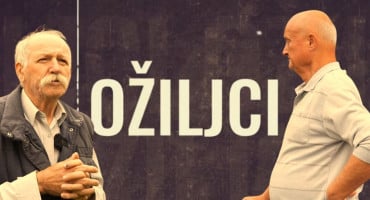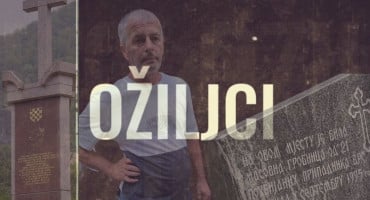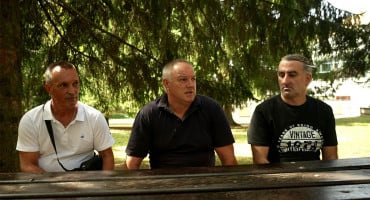Opening a lithium mine in Serbia would also endanger the BiH ecosystem, but those in charge do not care
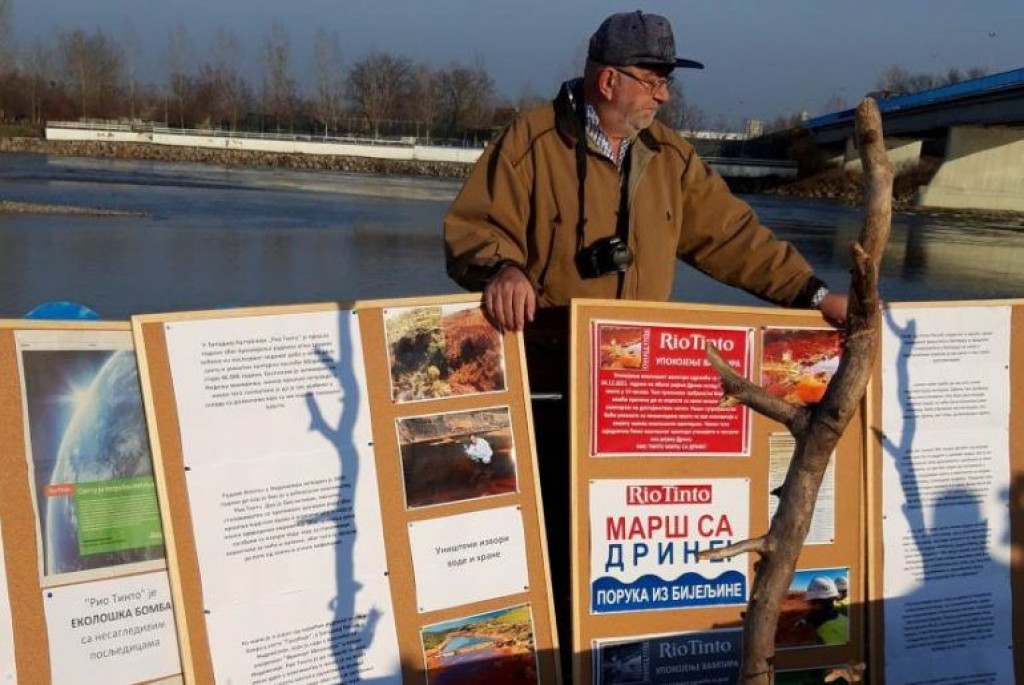
Pollution that threatens Serbia if the exploitation of ore such as jadarite from which lithium is extracted, will destroy the entire ecosystem around Loznica, and huge problems will affect the area around the Drina River with which Jadar shares groundwater, which will cause incalculable damage to Bosnia and Herzegovina.
Writes: Andrijana Pisarević/etrafika.net
According to eTrafika’s interlocutors from environmental associations in Serbia and Bosnia and Herzegovina, as well as a group of professors from the University of Belgrade, the Drina River and both its banks will be significantly endangered if the lithium mine, opened by the Rio Tinto conglomerate, opens. They say that the pollution that has already occurred due to excavations and research in Serbia has long exceeded the local level and began to threaten the Drina basin, and threatens the natural resources and ecosystem of BiH. Experts and environmentalists appeal to the citizens of both countries to be well informed about the situation and the dangers that threaten them, and not to allow, not only Rio Tinto, to continue research and exploitation of lithium, but anyone.
Toxic and carcinogenic materials
Professor Dr. Ratko Ristić, dean of the Faculty of Forestry in Belgrade, told eTrafika that the biggest problem is that in Loznica and in many other smaller places where there is lithium, exploitation would significantly endanger the lives of the population. He explains that for the needs of mineral extraction and processing to obtain lithium, it is necessary to form landfills where carcinogenic and toxic material would be disposed of, which will disrupt biodiversity, destroy nature, water, and air quality, and lead to population displacement.
“A real, small disaster. If these landfills are formed, they will endanger the groundwater of the Jadar, the Korenita, and the Drina. The first next torrential flood on the Jadar river, which happens very often, will break the belt and pull toxic and carcinogenic material into the ground and immediately reach the water supply of Belgrade, but also surface and groundwater in BiH. The wind from the landfill will blow away the microparticles tens of kilometers around. It is estimated that there will be about 6,000 tons of arsenic in these landfills. The right bank of the Drina would be primarily endangered, but no one can guarantee that the left bank will be spared from the consequences of the catastrophe “, explains Ristić.
He notes that his colleagues, from the Faculty of Biology in Belgrade, conducted a study on the impact on the living world for Rio Tinto and stated that biodiversity would be erased and recommended that no work should be started there.
Our interlocutor says that the people in Serbia did not protest for no reason and that we are all in real danger. Ristić says that the planned project is unnecessary, and that the quantities that Serbia has are insufficient for the state to have an interest in such an agreement.
“They would earn far more to invest in agriculture. The consequences for the health of the population could only be discussed. People sensed what could happen and protested, and the government misjudged that, thinking they were politically instructed. “Numerous individuals and influential people from our public life understood everything and supported the struggle of the people, aware of what they are trying to protect,” he says.
In the scientific paper “Degradation of space within the Jadar project” signed by Prof. Dr. Ristić, Ivan Malušević, Angelina Novaković, Petar Nešković, Siniša Polovina, and Vukašin Milčanović, that was ceded to eTrafika, emphasizes that “the realization of the Jadar project, on an area covering several thousand hectares of land under forest, agricultural and urbanized areas, and which includes the opening of mines, the formation of landfills, exploitation of groundwater, treatment of ore with sulfuric acid, construction of access roads and permanent changes in land use, irreversibly change and degrade the existing image of the landscape and endanger biodiversity.
“The planned location of the mine, accompanying infrastructure and production facilities is located in the western part of Serbia, on the border with Bosnia and Herzegovina, about 15 kilometers from the city center of Loznica, in a highly agricultural area with several thousand inhabitants. According to the available spatial planning documentation, it is planned to occupy the space in the areas of the villages of Gornje Nedeljice, Brezjak, Slatina, Brnjac, Veliko Selo, Jarebica, Stupnica, and šurice, where about 4,000 people live, in order to create conditions for annual production of 1.6 million tons of jadarite ore, 286,000 tons of boric acid, 58,000 tons of lithium carbonate and 259,000 tons of sodium sulfate. “Preliminary estimated spatial coverage of the ‘Jadar’ project, only in the initial phase of the project, would destroy 533 hectares of land, of which 203 are forests and 317 hectares of arable land,” the study said.
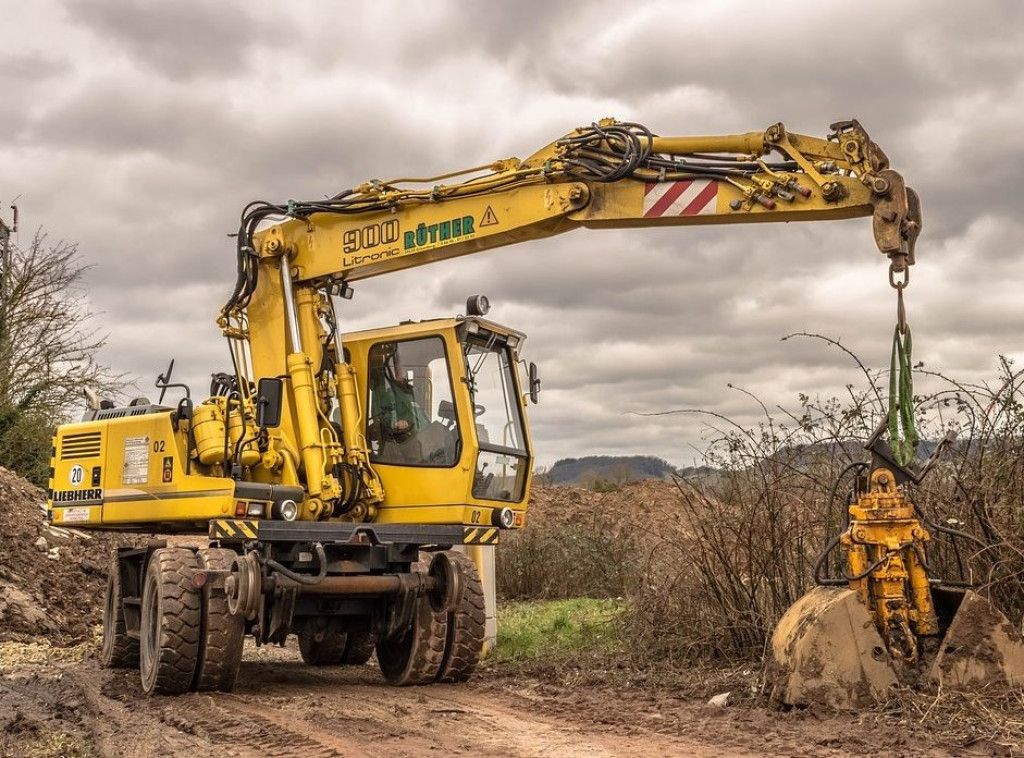
FOTO: Pixabay
The company’s reputation does not inspire confidence
It is added that the excavation of jadarite would be possible only after massive earthworks, and the process of ore mining and groundwater pumping would lead to the subsidence of almost 850 hectares of land.
“By establishing landfills in the immediate coastal zone of extremely torrential watercourses of Korenita and Jadar rivers, there is a constant threat that torrential flood waves will destroy protective embankments and landfill bodies, blow up toxic waste and permanently contaminate the entire valley. The possibility of transporting large quantities of pollutants to the course of the Drina, then the Sava, opens up; with unpredictable consequences for downstream sections “, the research states.
By the way, the mineral jadarite, which was discovered in the Jadar Valley, was presented as one of the most promising natural materials for battery production, due to its high lithium content, which is the most important component for making rechargeable batteries for electric cars. However, the fear of the mentioned professors is additionally justified by the bad reputation of the concessionaire.
“Rio Tinto’s current international reputation does not instill confidence in the safety of production processes, environmental protection, and the treatment of workers. Examples of intimidating Rio Tinto practices around the world (Panguna-Bougainville mine, Papua New Guinea, Freeport-Grasberg mine; Indonesia: mines in Cameroon, Mozambique, Madagascar) show enormous levels of water, soil and air pollution, worker diseases, and food shortages. Total destruction of ecosystems, local war conflicts with thousands of victims, and mass displacement of the local population. The benefit for Serbia is especially unclear if we can talk at all about any compensation for such a massive degradation of space and a permanent risk to the health and safety of the population,” the study states.
Only one planned landfill near the village of Gornje Nedeljice covers an area of 19.5 hectares, with floors 10 meters high. It is planned to dispose of about 9.4 million tons of material (tailings and poor ore), on a foil 1.5 millimeters thick, in order to protect groundwater reserves from the spillage of toxic substances.
“Of particular concern is the behavior of the Ministry of Mining and Energy, which often acts as an advocate for the interests of mining companies, while neglecting the vital interests of the local population and an extremely superficial attitude towards the problem of environmental protection. Strict control of the work of this ministry is needed, because it is obvious that someone sees Serbia as a cheap resource base, which will give its most valuable natural potentials, with complete degradation of space and endangering the vital interests of its own population,” the professors concluded.
The ecosystem in BiH is also endangered
Snežana Jagodić Vujić from the Bijeljina environmental association “Eco Road” also believes that the citizens of BiH will face severe pollution, which is why this organization recently had a performance called “Retirement of Rio Tinto vampires”. She says that we must first remember the floods from 2010, and then in 2014, when there was a heavy metal mine on the same place, on Jadar, held by another company. The tailings of that mine (dry matter dump) were a hundred meters from the river Jadar, which is hilly, torrential, and during rainfall leaves its trough for a moment.
“Then Jadar overflowed, the tailings dam cracked and heavy metals began to leak first into Jadar, and then into the Drina river. From 2014 to 2016, we found heavy metals in the municipality of Bogatić, Badovinci, Crna Bara, towards the confluence of the Drina and the Sava rivers. If the dam had completely burst, the pollution would have spread in all directions through the river courses and we would have had big problems. I would say that those who make decisions for us do not think in the right way. We are facing a great danger that threatens the Drina River. There are also its old streams on both sides. Since 2015, the association ‘Eco Road’ has been fighting to protect this old stream because it is a special pond ecosystem that should have been protected a long time ago. Unfortunately, its appearance has changed due to the exploitation of gravel and other human influences. We have been trying to protect Drinica for years, and the relevant Ministry of Physical Planning, Construction, and Ecology of the RS officially adopted our initiative in February this year, and now they (Rio Tinto) are coming to poison our little treasure.”
According to Jagodić Vujić, the Rio Tinto company has existed for over 120 years and is called an “ecological vampire” in the world because wherever they appear, they don’t leave “anything alive afterward”.
“It is important to know that this type of mining is not like mining coal, digging on the surface. There is no classic mine here, there are wells, holes 300 to 500 meters deep. For only one fraction, they need 1.5 million cubic meters of pure water from Jadar, which they mix with 300,000 tons of sulfuric, hydrochloric, and boric acids, and then heat it, and pump it into the well under high pressure. On the other side, the matter they need comes out, and where it erupts, they make tailings pond with waste. When they are finished, they withdraw another million cubic meters of healthy, drinking water from Jadar, in order to purify everything and return one million cubic meters with a guarantee that the maximum pollution will be five percent. That five percent is huge for water and nature. This mining process is not environmentally friendly. You can see in the world what they were doing. All companies like Rio Tinto are only interested in profit, they don’t care about the environment or people living in that climate, and the ore rent that the state receives is bizarrely small. From all this, it is clear that we have to defend ourselves from them, but also from any other company that would come for the same reasons “, she says and adds that the big problem is that people do not know what is in store for them.
She says that they immediately joined the campaign against the sale of natural beauties and that they will support colleagues and citizens in Serbia and in our country until we save ourselves from this deadly pollution.
“From the first day when Rio Tinto appeared, we organized a protest immediately. The excavations on Ozren certainly have something to do with Rio Tinto, they are called Medeni brijeg from Bijeljina and I first heard about them only a few weeks ago. There are several other companies that deal with geological research, and it is no coincidence that they all appear from all sides at once. And it’s not just one company, it’s big companies that open smaller ones in every country as part of Rio Tinto, ”she says.
He adds that they have not yet addressed the authorities of Republika Srpska, but that they have received information about the excavations on Ozren, as well as that research is underway on Majevica, and that the municipalities of Lopare and Ugljevik have given their consent for works in their area. Bijeljina refused to give consent in the area of the village of Suho Polje on the border with Ugljevik.
Nothing is transparent
Siniša Petrović from the, for now, the informal organization “Stop Poisoning Ozren”, says that they will not allow excavations and research to continue with them. He says that in April this year, the newly established company Medeni Brijeg, the sister company of Lital Licos metal limited from Australia, which is engaged in exploration and mining of ores and metals, received a municipal permit to drill and explore in the village of Sočkovac. Seeing the experience of people from Serbia, aware that something was happening around them that they were not informed about, they knew that they had to do something and started to organize.
“The municipality did not ask for a professional written work, nor a presentation for the locals, so people did not even know that something would be done in their close surrounding. Suddenly they began to fill the roads. They did research on private land, came with small shovels, and removed the top layer of the soli and based on that sought the consent of the locals, and when they got it, they started with further and deeper excavations. Huge mines were created. Drilling has not started yet, but it will be after the winter is over. They planned a depth of 250-300 meters and are looking for copper, nickel, and other metals. The problem is that nothing is transparent and we do not know what they intended. They recently went through the village with some leaflets and walk from house to house because the citizens are protesting. Now they promise us that they will take care of everything and that there will be no pollution. There are also sources of healthy water, this is an area rich in ores, natural gas, and so on. It is known that there is copper and nickel, probably lithium, more precisely jadarite, there are traces of gold and silver, but these are small amounts. “Nobody knows if there will be mines, but the locals are afraid now,” said Petrovic.
The citizens of Serbia have been protesting for a month against the exploration and opening of the Rio Tinto mine in the Loznica area, and five environmental organizations have formed the SEOS (Association of Environmental Organizations of Serbia), aimed primarily at combating the exploitation and processing of lithium, boron and accompanying associations of elements, but also all other dirty technologies and mining dangerous to land, water, air, and overall biodiversity. This alliance and the citizens managed to force the president of that country, Aleksandar Vučić, to change his position from “the streets will not lead politics” to “I supported the people”, after which he withdrew the controversial laws on expropriation and referendum.
Nebojsa Petković from the association “Ne damo Jadar”, from Gornje Nedeljice near Loznica, explained what that law means for his village.
“According to the current Law on Land Expropriation in combination with the Law on Mining, we in the Jadar Valley cannot prevent expropriation. Under the old law, the procedures are much longer than under the new one, which gives you only five days to appeal the expropriation decision and then have three days to decide on it, plus a shortened eviction deadline. In 20 days you are on the street. Evicted from your home because someone put their eye on it. Earlier law did not allow you to be evicted and forced to give a field for research. It is now possible for them to take your field by force for three years and plus three more, with the payment of rent. The law on the referendum enabled them to call the same referendum every year until they get what they want,” he said.
Strength of the people
Petković told eTrafika that everything was done by joint forces because huge energy of people who know and are aware of the danger is created, which is why they resolutely acted to stop the adoption of the law on land expropriation and the one on the referendum.
“We don’t want a mine here. Rio Tinto is not our only concern. We don’t want anyone to open a mine here. That is our ultimate goal. This is fertile soil and there are huge yields on the land, our agriculture is all we want. All our experts stood by us and supported what we are fighting for. It is clear to everyone that their or anyone else’s mine will create an ecological, sociological, and any other catastrophe here “, says our interlocutor.
Petković adds that the government in Serbia gave in only after they realized that this would take over million people to the streets.
“They entered the houses of influential people, built friendships with them, in order to get a better position in the villages. Then the people began to realize that there was a problem, that a landfill appeared and there was talk of 250 hectares of land, sulfuric acid, dynamite and soil crushing, 10,000 cubic meters of gas per day needed to dry tailings. They asked to make a collector with a flow of 120 cubic meters of water per second from the Drina River. They planned to haul groundwater, because if they took it directly, they would have to ask for a permit from BiH. It is a trap, because everyone knows that the Drina River replenishes groundwater supplies “, he explains and adds that he will stick to his demands and go to the streets until they adopt them to the very last.
Dragan Simović from the Association of Citizens “Let’s Protect Dobrinja and the Environment”, from the village of Dobirnja near Požega, says for our portal that they were interested in the situation when they learned that 12 villages will include the basin of the mine “Dobrinja”.
“We didn’t even know about Loznica or what was happening, but when we realized what kind of troubles were lurking, we connected. The population was deceived, geologists led them to allow them to install drilling devices, believing that 40,000 dinars of annual rent is a fine amount to earn until they found dead deer in the field of Jadar. From 500 to 600 wells in Jadarsko polje, almost 30 of them are leaking and biting the concrete, so every month or two they have to rebuild two. This is best seen in the summer when you realize that 30 meters around these leaking wells there is no grass. If just one well leaking and polluting does so much damage to the land, imagine what it would be like for the production to start. That would be a disaster. We have informed the people well, and we are on duty of monitoring whether unknown cars are coming to us. It happened that we caught some who were taking samples without having an order or a permit. We do not let those hajduks roam our soil. There is no other way, if they behave like that, so must we. We know we don’t want a mine and we won’t allow it at any cost. This system has brought us to the position that when someone offers us some money, we give everything away. They forgot that we are proud and that there is no money that can pay for it, because they want to take everything from us”, says Simović.
Silence in BiH
At the same time, political representatives from Bosnia and Herzegovina ignore the mentioned topic. The topic that shook Serbia and directly affects BiH as well. The questions of our portal were answered, saying that the level of BiH is not competent for them, while the relevant ministry from the Government of RS did not recognize the issue of excavations in Serbia as worrying, nor did it speak about it.
In order for someone to be able to excavate anything or conduct research in the Republika Srpska, he must be registered in the mentioned territory, in accordance with the applicable regulations. According to RS Assistant Minister of Energy and Mining Esad Salcin, there are several concessionaires in Srpska whose founders are foreign companies or foreign individuals. In Prijedor, there is Arcelor Mittal, in Srebrenica Gros, and in Herzegovina, the Chinese are excavating decorative stone.
“Rio Tinto did not ask us for research. In Ozren, we have approval for the legal entity Medeni brijeg from Bijeljina, which is linked to foreign capital from Australia, but I don’t know if that’s the case,” he said, adding that issues related to the Drina River certainly fall under some international agreement and that he doesn’t know what the excavation technology will be like in Serbia, and whether it will be at all.
Salcin says that Medeni Brijeg addressed the Ministry with a request to investigate metallic mineral raw materials for the research of copper, nickel, lead, and zinc with accompanying minerals.
“The holder of the right to research has received the full support of the municipality and is recognized as an investor. Since we already have three concessionaires, we asked them to conclude an agreement with each other so that they would not overlap and so that there would be no professional omissions in the execution of works. There was an expert public debate in Petrovo in January, and full support was again given to the project. Medeni brijeg began research in May, and some individuals showed their dissatisfaction in the fall. There is no reason to panic, drilling is being done around us at all times. I understand the fear of the locals, but I don’t think they are adequately informed by the local community. This geological research of metal ores does not endanger the environment in any way. It is planned to take and analyze samples and drill dozens of exploration wells, this has been done tens of times already and no one has complained before,” Salcin told eTrafika.
